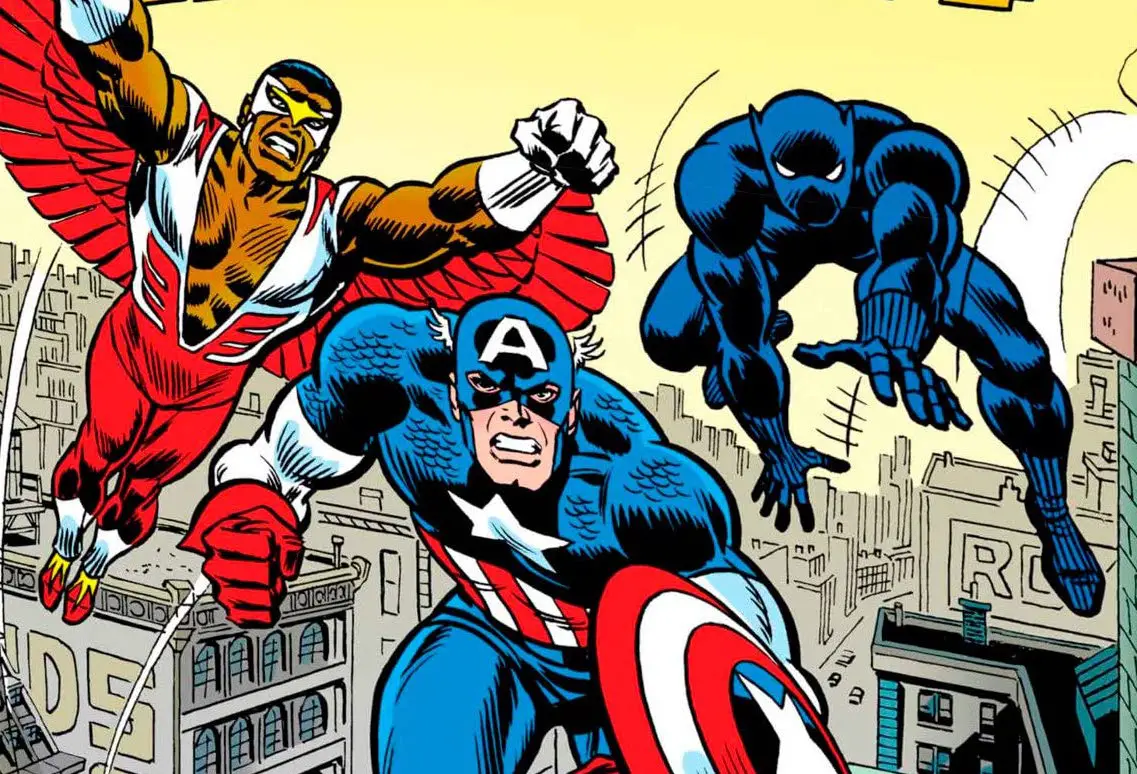In the summer of 1974, the American public had come to distrust the political machinations of their leaders. By that point, the US military had been engaged in Vietnam for nearly twenty years, and the dreaded draft, which drew unwilling participants into the heated and gruesome conflict starting in 1964, had just ended in 1973.
A burglary of the Democratic National Committee in June of 1972 had kicked off the Watergate scandal, a swampy, convoluted mess that would lead to President Richard Nixon’s resignation from office in August of 1974.

Marvel Comics
The shock that an American president could be so wantonly engaged in criminal activities – something that almost feels a given in 2023 — was, at the time, massive and revelatory. While the war had threatened American safety and eroded the trust that the military would be used with ‘virtue’, the downfall of the President devastated people’s trust in elected officials; the presidency, and the public’s devout allegiance to it, had been irreparably damaged.
The media of the era – such as the issues of Captain America and Falcon collected in Captain America Epic Collection: The Secret Empire – is dense with allegory, imbued with a sense of American disenfranchisement. The film Chinatown illustrates corruption and conspiracy in a 1930s LA, suggesting to viewers that people in power had been abusing it all along. The Texas Chainsaw Massacre, with its family of heartland cannibals, suggests that something more sinister could be lurking in the most mundane of spaces (something that, like the draft, could chew through the American youth); a year earlier, The Exorcist implied that evil lived right at home.

Marvel Comics
Not all of the issues in Secret Empire smack of the larger political commentary churning in other mediums – comics were, after all, still primarily aimed at children. Cap and Falcon battle a solar man, some snake guys, and, bizarrely, the Queen of the Werewolves. Several issues focus on an alarmingly racist villain by the name of the Yellow Claw, and not much comes of this.
There is a thread of cultural unease seeded early, however: in issue #163, Serpent Society member Viper puts in a quick phone call to an advertising agency. It’s a small, almost baffling scene, barely two panels long, but that one phone call spins out into the major conflict of a story that sees a major public official dead and Cap struggling with his role as a patriotic icon.
The advertising agency, at the behest of a secret society known as the Secret Empire, begins a publicity campaign to destroy the American people’s trust in Captain America; like the office of President, the role of a political icon becomes tarnished in the court of public opinion.

Marvel Comics
The Empire itself reads a little hokey, a little too big for its britches; an offshoot of Hydra, the Empire had been shown in earlier comics to be easily defeated, mostly ineffective. They have an unclear objective, aside from ruining Cap’s life, and it isn’t until issue #175 that the reader comes to understand just how big the Empire’s reach might be.
The issue is cover dated July 1974. That same month saw the release of All the President’s Men, Bob Woodward and Carl Bernstein’s account of their journalistic endeavors to unravel the Watergate conspiracy; near the end of the month, the House Judiciary Committee would put forward charges on which to impeach President Richard Nixon.
In that issue, after Cap’s crew summarily puts down the Secret Empire and simultaneously clears his name, the Empire’s mysterious leader, Number One, runs into the White House. Cap gives chase and ultimately unmasks Number One, whose features are never shown on-panel. “Good lord! You!!” Cap yells, and Number One explains that high political office did not satisfy him – and then takes his own life.

In the pages of Captain America, someone analogous to President Richard Nixon commits suicide in the Oval Office after the reveal of a massive conspiracy.
It’s an alarming bit of comic book esoterica, buried on the back page of what is, ultimately, a hokey and uneven story. Nearly blink-and-you-miss-it, the social commentary lacks the sort of punch and conviction that other protest media of the time adopted. Yet it stands as a definitive moment in the mythology of Captain America. Five issues later, the implications of the issue lead to Steve Rogers abandoning the shield and taking up as Nomad.
Captain America Epic Collection: The Secret Empire contains other high moments, including the introduction of Falcon’s wings and the ever-confusing continuity of Peggy Carter. The second Baron Zemo makes his first appearance, then gets tossed into a vat of (very super) super glue. It’s jam-packed with Sal Buscema’s patented grimace (it seems like no other expression can be made). None of this, however, can step out from under the shadow of those five suggestive panels in which a President’s life is ended in the Oval Office.
Join the AIPT Patreon
Want to take our relationship to the next level? Become a patron today to gain access to exclusive perks, such as:
- ❌ Remove all ads on the website
- 💬 Join our Discord community, where we chat about the latest news and releases from everything we cover on AIPT
- 📗 Access to our monthly book club
- 📦 Get a physical trade paperback shipped to you every month
- 💥 And more!













You must be logged in to post a comment.